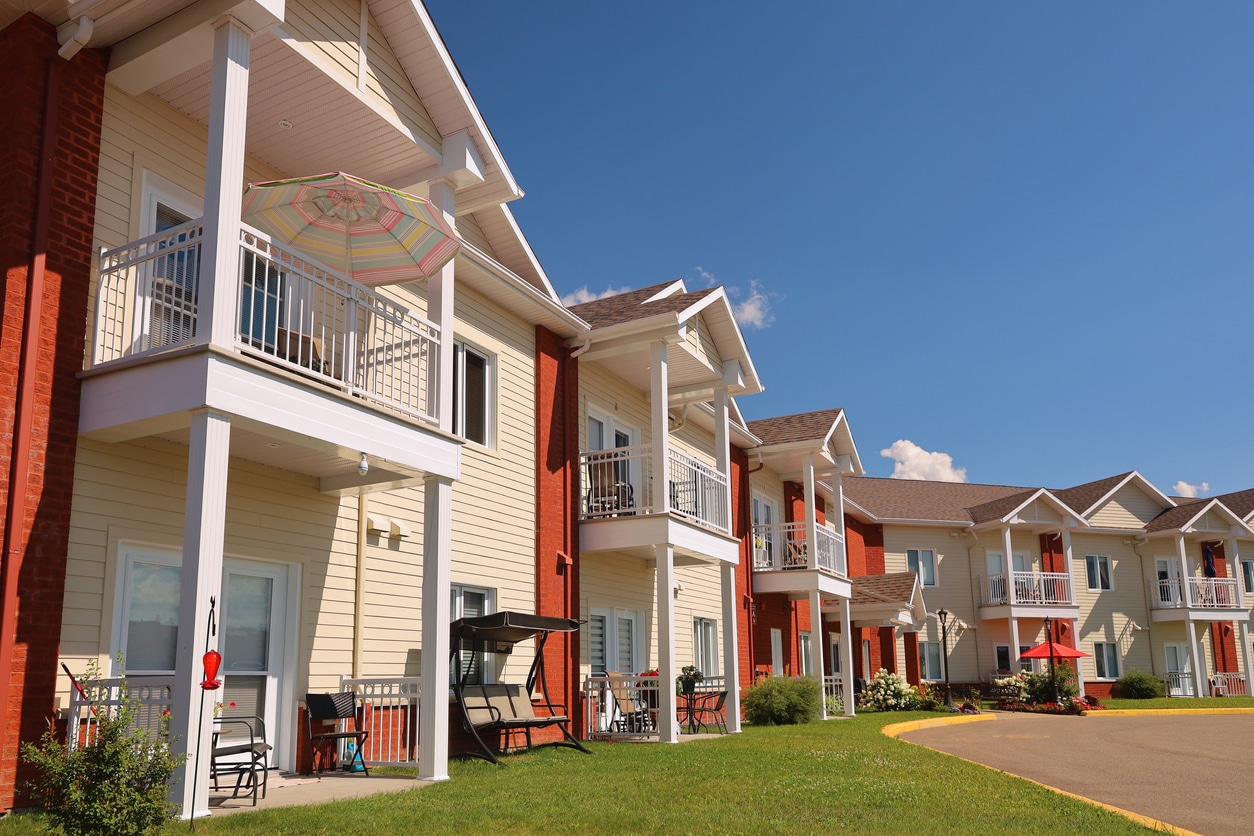Figuring out the right living arrangement for an older adult can be challenging. Whether it is about leaving the home they have lived in for many years or moving from independent living to something with more assistance, change can be stressful and emotional.
Luckily there are several options, including retirement homes, assisted living facilities, and nursing homes. Although sometimes used interchangeably, these are all different types of living environments, offering varying degrees of care, independence, and services.
Understanding how they differ can help you determine what is best for your family member.
Retirement Homes

Retirement homes (or senior living facilities) are geared toward older adults, usually restricted to the 55 plus population. These dwellings are ideal for seniors who are still mostly independent but would emotionally benefit from living amongst their peer group and some on-site support.
There are many different senior living facilities ranging from individual homes in a community to small apartments in a building. Although many retirement residences have kitchens or kitchenettes, community meals are also usually available as well. This arrangement allows residents to have the option of eating alone or with peers in a more social environment and still participating in daily living activities. Light housekeeping and laundry services may also be provided.
Retirement homes usually have a schedule of daily activities for residents, including social activities like dance classes, exercise, art, and music. Off-property excursions to shows, malls, or other recreational activities may also be offered. Residents can participate in as few or as many activities as they desire.
Retirement homes offer a minimal level of care and are considered independent living. While there are staff on-site 24 hours in case of an emergency, residents of retirement homes should be able to take care of their own basic needs such as bathing and getting dressed. They can also come and go as they please, although they may be required to check in with staff when they leave grounds and when they return.
Assisted Living Facilities

An assisted living community is for older adults who can no longer safely live entirely independently and require some level of on-site care.
Assisted living is not a medical environment. Residents live in their own individual apartment or single room, and there are common spaces that all residents share. In some assisted living facilities, couples can live together, or a person can have a roommate. Services including communal dining catering to various nutritional needs, laundry, and light housekeeping are available. Resident rooms are usually equipped with emergency cords, and full-time staff is on call if there is a concern and the resident needs immediate assistance.
Assisted living communities offer varying degrees of personal and medical care for residents and the fees may vary depending on what services the resident needs. For example, there may be additional charges if the resident needs help with bathing or medications. Many assisted living facilities have memory care units geared explicitly for those suffering from dementia-related issues.
Residents at assisted living facilities may be allowed to walk alone on the property but not leave the site without accompaniment.
Nursing Homes

Nursing homes (also called skilled nursing facilities) are for adults who need the highest level of care available outside of a hospital setting. A nursing home is less home-like than assisted living and a more clinical setting.
In nursing homes, residents receive round-the-clock care. Residents of nursing homes need hands-on assistance and may have medical issues, including incontinence or relying on a feeding tube for nourishment. Although most nursing home residents live there permanently, some are there only for a short stay to rehabilitate after being hospitalized and receive treatments like physical therapy, speech therapy, or occupational therapy. A licensed physician on staff and other medical staff such as physical therapists, nurses, and dieticians are usually also available to provide 24-hour care.
Making the Move

If you are concerned about your loved one’s current living situation, broach the idea of a move sensitively. Involve them in the decision as much as possible. Explain why you think a move is necessary. Take them to tour a few places, so they can ask questions, meet current residents and staff, and find the right choice for them.
In addition to factors such as cost, level of care, and location, think about possible future needs. . Some retirement homes (known as Continuing Care Retirement Communities) offer an assisting living component that can address senior care and medical needs down the road. This arrangement allows residents to make an easier transition to a more skilled nursing facility if and when the time comes that they need more personal or medical assistance.
Bear in mind that even if everyone involved agrees that a move is for the best, it takes time for your loved one to adjust to their new surroundings. Older adults with dementia may seem more confused at first as they become acclimated.
While moving to a retirement home, assisted living facility, or nursing home may feel like an ending, it can also be a beginning. Many older adults thrive within these establishments, enjoying the opportunity to meet new people, learn new skills, and be around others their age. These living arrangements can also benefit family members, offering them peace of mind that their loved one is in a safe, secure environment.
Read Next:







